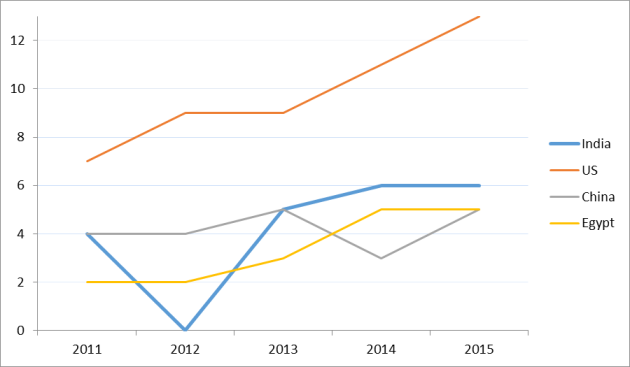Experts & Views
Two days before the ongoing MAG meeting, the 2017 MAG renewal was announced. The CSCG protested the lack of civil society representatives among the new MAG members. This brought back focus on the need for MAG reform. Our report on multistakeholderism had identified the lack of transparency and geographic diversity in MAG selections. These issues remain relevant as another set of MAG meetings kick off in Geneva.
The Multistakeholder Advisory Group (MAG) of the Internet Governance Forum (IGF) was renewed for 2017 on Monday. The renewal has attracted controversy as no civil society members were added to this year’s MAG. The announcement has brought into focus a persistent criticism on the lack of transparency in the MAG nomination process. The lack of transparency and geographic diversity in the MAG was discussed in our report on multistakeholderism. Some of its findings are relevant to the 2017 MAG renewal.
Created on the recommendation of the Working Group on Internet Governance (WGIG), the MAG is responsible for organising the annual IGF. The MAG is not a decision-making body by design. But Jeremy Malcolm (pp. 420-422) points out that the MAG effectively chooses issues that are debated on a global stage in the course of organising the IGF. In this respect, he argues that the MAG plays an important agenda setting role in internet governance.
MAG Nomination Process and Transparency
The make-up of the MAG is similar to the WGIG in that consists of representatives of all stakeholder groups (government, private sector, civil society and technical community). The selection of MAG members is made by the United Nations Department of Economic and Social Affairs (UN DESA) under the authority of the UN Secretary General. Nominations to the UN DESA are made through focal points from different stakeholder groups, but applicants can also apply to the UN DESA directly.
As noted in our report (pp. 70-72), once nominations are sent to the UN DESA, there is no clarity on how members are selected to the MAG. The only available information on DESA’s selection criteria are the five criteria listed on the IGF website. These criteria include achieving a geographic and gender balance and that representatives should have strong linkages to their stakeholder groups.
The controversy in this year’s MAG renewal arose out of the lack of new civil society representation on the MAG. The Civil Society Coordination Group (CSCG), which is the focal point for civil society nominations wrote to the IGF secretariat asking it to reconsider its decision. They pointed out that no civil society members were added to the MAG this year despite two civil society members retiring from the MAG (members are selected for 3 year terms and a third of the MAG retires each year). The letter also called on the IGF secretariat to select an additional civil society member to the MAG.
This is not the first time that MAG nominations have been controversial. In 2016, the CSCG wrote to the IGF secretariat asking for greater transparency and inclusiveness in selections to the MAG. Similarly, as discussed in our report (p. 73), an Indian civil society member nominated by the CSCG was not selected to the MAG in 2014. In the above cases, the CSCG had contacted IGF secretariat asking for greater clarity on how selections were made.
Geographic Diversity
One of the findings of our report with respect to the MAG was on the geographic diversity of the group. As mentioned above, geographic diversity is one of the stated criteria based on which the UN DESA selects members to the MAG. Our report found that on average, 8-10% of MAG members were from the United States (based on their affiliation mentioned on the IGF website). As shown in the chart below, this was the highest percentage representation from any country between 2011 and 2015.
Membership by country as a percentage of total MAG Membership (2011-15)

Source: Multistakeholderism in Action
This trend has continued in the 2017 MAG renewal with 4 members or 7% of the MAG being from the United States. No other country has more than 2 members in the current MAG. The FAQ section on MAG renewals acknowledges this disparity. It stated that the MAG currently has an excess of members from Western Europe and Others Group. It also states that a new selection process will attempt to make the MAG more regionally balanced. It remains to be seen if this imbalance will be addressed in the next MAG renewal cycle.
The MAG nomination process raises questions on the transparency of the process and the diversity within the MAG. However, there is very little publicly available information or communication from the UN DESA beyond the criteria listed on the IGF website. The 2017 announcement was made one day before the IGF Open Consultations and MAG meeting were to begin in Geneva (1st March). A CSCG representative who circulated the letter believed that the issue of non-selection of a civil society member might be taken up at the meeting.